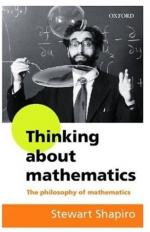|
This section contains 1,825 words (approx. 7 pages at 300 words per page) |

|
Overview
Rigor was a characteristic of mathematics going back to Greek times. For much of the Renaissance and the Enlightenment mathematics in general and calculus in particular were more about problem solving than about proving with logical exactness the correctness of theorems. The nineteenth century saw the return of logical rigor to mathematics, accompanied by a more thorough investigation of the foundations of mathematics than had been attempted previously, thanks largely to progress in mathematical logic.
Background
One of the great works of Greek mathematics to come down to the world of scholarship after the Middle Ages was the long-awaited translation of the Elements of Euclid of Alexandria (fl. c. 300 B.C.), which arranged the results of geometry in a sequence of definitions, axioms, postulates, and theorems, where each of the theorems was proved using the earlier theorems...
|
This section contains 1,825 words (approx. 7 pages at 300 words per page) |

|


